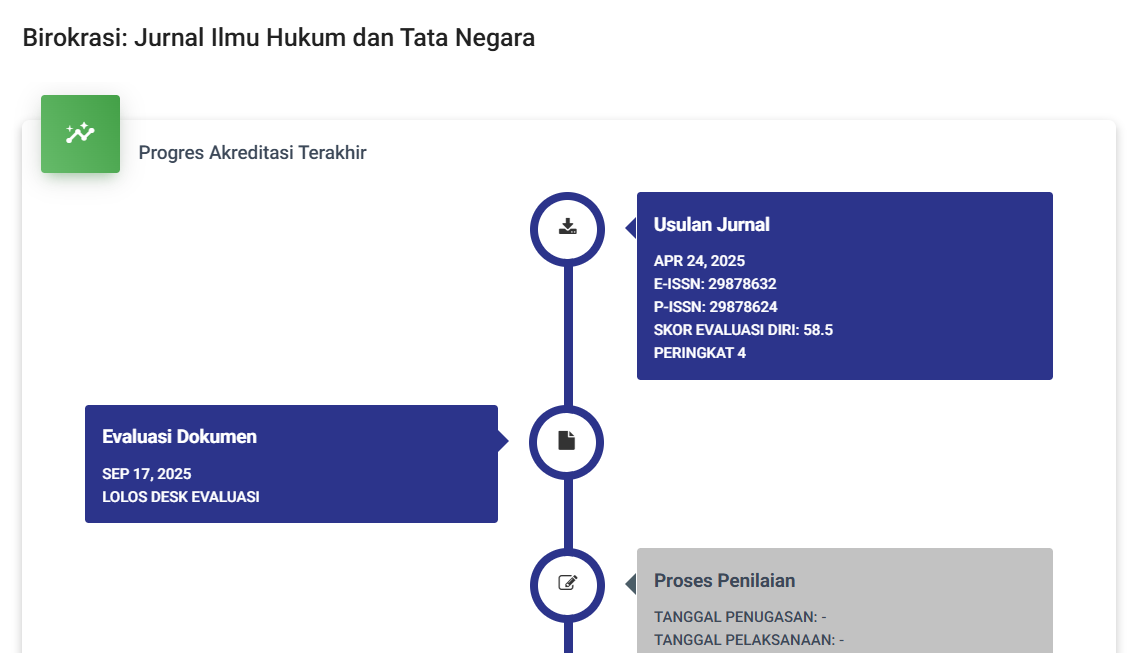Peran Media Sosial dalam Pengawasan dan Pencegahan Korupsi di Indonesia
DOI:
https://doi.org/10.55606/birokrasi.v2i4.1657Keywords:
Social Media, Corruption, Transparency and AccountabilityAbstract
This study examines the role of social media in monitoring and preventing corruption in Indonesia, an issue that has become a primary concern among the public and government. With the increasing number of social media users in the country, these platforms are expected to serve as effective tools in enhancing public participation in overseeing corrupt practices. The research explores various aspects, including how social media enables the community to report corruption cases, share information, and build collective awareness about the impact of corruption. Additionally, this study highlights the challenges faced in utilizing social media, such as unequal access, negative responses from authorities, and the phenomenon of information fragmentation that can hinder constructive dialogue among the public. Through a literature review approach, this research analyzes various relevant sources to provide in-depth insights into the impact and effectiveness of social media in preventing corruption. The findings of this study are expected to offer recommendations for maximizing the potential of social media as a tool to support transparency and public accountability in Indonesia. With a better understanding of the role of social media, it is hoped that both the public and government can collaborate more effectively in the fight against corruption, thereby creating a cleaner and more accountable environment for future generations.
References
Akbar, M Fikri, Henny Dewi, Laras Ati, and Ardian Sukarson. “PERAN TIKTOK DALAM MENINGKATKAN BRAND AWARENESS.” Journal Media Public Relations 4, no. 1 (2024): 52–57.
Burhanudin, Achmad Asfi. “Kontribusi Mahasiswa Dalam Upaya Pencegahan Korupsi.” Jurnal El-Faqih 5, no. 1 (2019): 78–85.
Ema, dan Luluatu Nayiroh. “KOMUNIKASI MEDIA SOSIAL SEBAGAI ALAT MOBILISASI GERAKAN SOSIAL DI INDONESIA Ema1,.” Jurnal Ilmu Komunikasi UHO : Jurnal Penelitian Kajian Ilmu Sosial dan Informasi 9, no. 1 (2024): 221–238.
Hasan, Zainudin. “IMPLIKASI PENGEMBALIAN KEUANGAN NEGARA TERHADAP PUTUSAN HAKIM DALAM PERKARA TINDAK PIDANA KORUPSI DANA BANTUAN PROGRAM NASIONAL PEMBANGUNAN MASYARAKAT MANDIRI PEDESAAN DI PROVINSI LAMPUNG.” Jurnal Keadilan Progresif 9, no. 2 (2018).
Hasan, Zainudin, and Maya Zulvi Astarida. “PENEGAKAN HUKUM LINGKUNGAN SEBAGAI UPAYA PEMBANGUNAN YANG BERKELANJUTAN.” Jurnal Ilmiah “Advokasi" 11, no. 1 (2023): 128–140.
Natalia, Desca Lidya. “Media Massa Dan Pemberitaan Pemberantasan Korupsi Di Indonesia.” Jurnal Antikorupsi INTEGRITAS 5, no. 2 (2022): 57–73.
Rizky, Muchamad Catur. “Upaya Pemberantasan Korupsi: Tantangan Dan Langkah-Langkah Konkret.” Jurnal Manuhara: Pusat Penelitian Ilmu Manajemen dan Bisnis 1, no. 4 (2023): 407–419.
Syukerti, Nanda, and Ahmad Iman Mulyadi. “Media Sosial Sebagai Media Pergeseran Interaksi Sosial Remaja.” Jurnal Ilmu Komunikasii Balayudha 2, no. 2 (2022): 1–10.
Winarta, Shofwan Dana, Gilang Jibriel Aqsha, and Aryaduta Prasetya. “Komunikasi Perubahan Sosial Masyarakat Dalam Menerima Berita Hoax Di Era Digital.” Prosiding Seminar Nasional Ilmu Ilmu Sosial (SNIIS) (2022): 194–202.
Wulandari, Bagus Ramadi. “PERAN MEDIA SOSIAL DALAM MENGUNGKAPKAN KASUS KORUPSI DAN DAMPAK TERHADAP OPINI PUBLIK.” CAUSA Jurnal Hukum dan Kewarganegaraan 1, no. 2 (2023).








